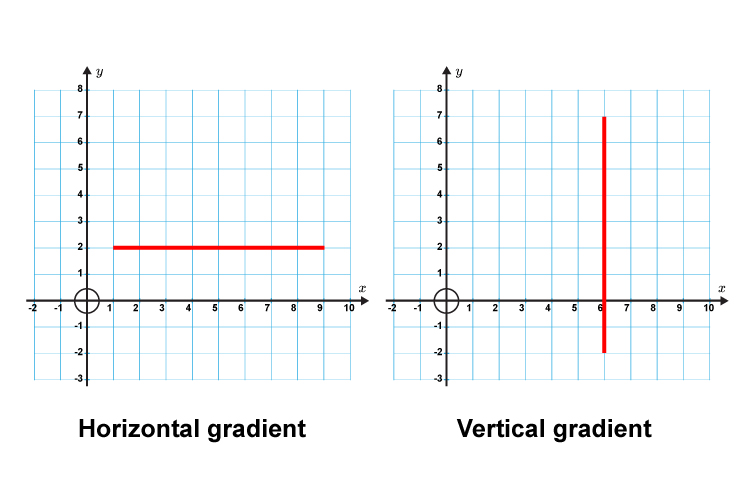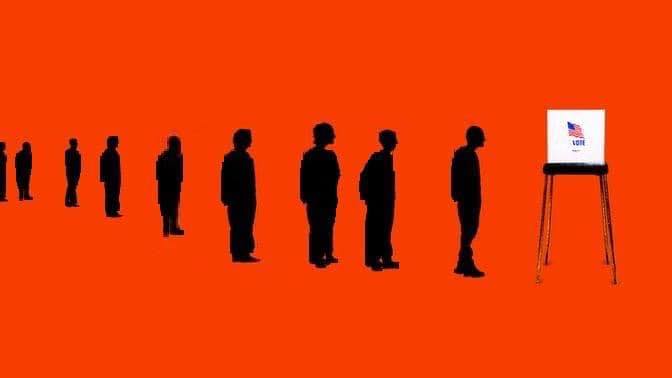 Belcher complained about the FDIC’s power to take his deposition. The parties, and the panel majority, agreed that his lawsuit did not become moot even after the challenged deposition occurred: ‘Because the district court on remand can ‘fashion some form of meaningful relief,’ appeal is not moot. Exactly what that relief might entail is beyond the scope of our concern. However, it is undisputed by the parties that the district court could strike Belcher’s deposition testimony before the FDIC.” The majority also noted that the district court could address the FDIC’s sharing of the transcript. A dissent observed: “I see no reason to override what common sense suggests: the appeal of an order requiring a deposition is moot once the deposition is over.” FDIC v. Belcher, No. 19-31023 (Oct. 26, 2020).
Belcher complained about the FDIC’s power to take his deposition. The parties, and the panel majority, agreed that his lawsuit did not become moot even after the challenged deposition occurred: ‘Because the district court on remand can ‘fashion some form of meaningful relief,’ appeal is not moot. Exactly what that relief might entail is beyond the scope of our concern. However, it is undisputed by the parties that the district court could strike Belcher’s deposition testimony before the FDIC.” The majority also noted that the district court could address the FDIC’s sharing of the transcript. A dissent observed: “I see no reason to override what common sense suggests: the appeal of an order requiring a deposition is moot once the deposition is over.” FDIC v. Belcher, No. 19-31023 (Oct. 26, 2020).
Monthly Archives: October 2020
 In one of many recent election-law disputes, the panel majority in Richardson v. Hughs painstakingly reviewed, and rejected, the plaintiffs’ challenge to Texas’s practices about signature verification for mail-in ballots. The procedural posture was a motion to stay; a concurrence cauti
In one of many recent election-law disputes, the panel majority in Richardson v. Hughs painstakingly reviewed, and rejected, the plaintiffs’ challenge to Texas’s practices about signature verification for mail-in ballots. The procedural posture was a motion to stay; a concurrence cauti oned: “[T]he reality is that the ultimate legality of the present system cannot be settled by the federal courts at this juncture when voting is already underway, and any opinion on a motions panel is essentially written in sand with no precedential value ….” footnote omitted). No. 20-50774 (Oct. 20, 2020).
oned: “[T]he reality is that the ultimate legality of the present system cannot be settled by the federal courts at this juncture when voting is already underway, and any opinion on a motions panel is essentially written in sand with no precedential value ….” footnote omitted). No. 20-50774 (Oct. 20, 2020).
If the law had an attic, it would hold the subject matter of Pool v. City of Houston, No. 19-20828 (Oct. 23, 2020):

It is often said that courts “strike down” laws when ruling them unconstitutional. That’s not quite right. Courts hold laws unenforceable; they do not erase them. Many laws that are plainly unconstitutional remain on the statute books. Jim Crow-era segregation laws are one example. The City of Houston contends that it’s being sued for one of these so-called “zombie” laws. Its Charter allows only registered voters to circulate petitions for initiatives and referenda, even though the Supreme Court held a similar law unconstitutional twenty years ago. This case thus requires us to decide when the threat of continued enforcement is enough to reanimate a zombie law and bring it from the statutory graveyard into federal court.
 (citations omitted). Held: the zombie walked, based both on the City’s history of enforcement of this specific law, and the inadequacy of its effort to disclaim further enforcement: “At least based on the current record, the City’s addition of the ‘Editor’s note’ on its website does not moot this case. Voluntarily stopping an unconstitutional practice renders a case moot only ‘if subsequent events ma[k]e it absolutely clear that the allegedly wrongful behavior c[an] not reasonably be expected to recur.'” You can hear more about this case on the Coale Mind Halloween Special – “Attack of the Zombie Statute!”
(citations omitted). Held: the zombie walked, based both on the City’s history of enforcement of this specific law, and the inadequacy of its effort to disclaim further enforcement: “At least based on the current record, the City’s addition of the ‘Editor’s note’ on its website does not moot this case. Voluntarily stopping an unconstitutional practice renders a case moot only ‘if subsequent events ma[k]e it absolutely clear that the allegedly wrongful behavior c[an] not reasonably be expected to recur.'” You can hear more about this case on the Coale Mind Halloween Special – “Attack of the Zombie Statute!”
 The dispute in Smith v. Toyota Motor Corp., No 19-60938 (Oct. 20, 2020), was whether there was diversity jurisdiction over two business entities with diverse business activities, one of which was named . . . Diversity Vuteq LLC. Despite the abundant diversity in the case, the Fifth Circuit reminded that there is not a diversity of opinion about how to properly plead citizenship:
The dispute in Smith v. Toyota Motor Corp., No 19-60938 (Oct. 20, 2020), was whether there was diversity jurisdiction over two business entities with diverse business activities, one of which was named . . . Diversity Vuteq LLC. Despite the abundant diversity in the case, the Fifth Circuit reminded that there is not a diversity of opinion about how to properly plead citizenship:
- “To adequately allege the citizenship of Toyota, a corporation, Smith needed to ‘set out the principal place of business of the corporation as well as the stat e of its incorporation.'” (citations omitted);
- “To adequately allege the citizenship of Diversity, a limited liability corporation, Smith needed to ‘specifically allege the citizenship of every member of every LLC or partnership involved in a litigation.'”
 A challenging case about the Texas foster-care system returned to the Fifth Circuit in M.D. v. Abbott, No. 19-41015 (Oct. 16, 2020), and the panel did not approve of revisions to an injunction that went beyond its mandate in the previous appeal: “Plaintiffs claim that the district court did not violate the mandate rule
A challenging case about the Texas foster-care system returned to the Fifth Circuit in M.D. v. Abbott, No. 19-41015 (Oct. 16, 2020), and the panel did not approve of revisions to an injunction that went beyond its mandate in the previous appeal: “Plaintiffs claim that the district court did not violate the mandate rule
because a court ‘invok[ing] equity’s power to remedy a constitutional
violation by an injunction mandating systemic changes to an institution’ generally has ‘the continuing duty and responsibility to assess the efficacy and consequences of its order.’ As Plaintiffs point out, we recited this general principle in Stukenberg II,  stating that ‘[a] district court undoubtedly has the equitable power to oversee compliance with its own injunction.’ ‘E]quitable decrees that impose a continuing supervisory function on the court commonly . . . contemplate the subsequent issuance of specific implementing injunctions.’ But judges disagree on occasion over the proper exercise of equitable powers, just as judges disagree on occasion over the proper interpretation o statutes. When that happens, appellate courts must make the final decision—and once the decision is made, it must be followed. And that, of course, is the whole purpose of the mandate rule: ‘A district court on remand . . . may not disregard the explicit directives of [the appellate] court'”.’ A (citations omitted).
stating that ‘[a] district court undoubtedly has the equitable power to oversee compliance with its own injunction.’ ‘E]quitable decrees that impose a continuing supervisory function on the court commonly . . . contemplate the subsequent issuance of specific implementing injunctions.’ But judges disagree on occasion over the proper exercise of equitable powers, just as judges disagree on occasion over the proper interpretation o statutes. When that happens, appellate courts must make the final decision—and once the decision is made, it must be followed. And that, of course, is the whole purpose of the mandate rule: ‘A district court on remand . . . may not disregard the explicit directives of [the appellate] court'”.’ A (citations omitted).
 John Dierlam doggedly pursued his religious-freedom challenge to the Affordable Care Act throughout that statute’s “serpentine history.” After considering his persistence in the face of constant statutory change, the Fifth Circuit reversed a finding of mootness, observing: “Ordinarily, when a case ‘has become moot on appeal,’ the court
John Dierlam doggedly pursued his religious-freedom challenge to the Affordable Care Act throughout that statute’s “serpentine history.” After considering his persistence in the face of constant statutory change, the Fifth Circuit reversed a finding of mootness, observing: “Ordinarily, when a case ‘has become moot on appeal,’ the court  should “vacate the judgment with directions to dismiss.” But ‘in instances where the mootness is attributable to a change in the legal framework governing the case, and where the plaintiff may have some residual claim under the new framework that was understandably not asserted previously,’ we ‘vacate the judgment and remand for further proceedings in which the parties may, if necessary, amend their pleadings or develop the record more fully.’” Dierlam v. Trump, No. 18-20440 (Oct. 15, 2020).
should “vacate the judgment with directions to dismiss.” But ‘in instances where the mootness is attributable to a change in the legal framework governing the case, and where the plaintiff may have some residual claim under the new framework that was understandably not asserted previously,’ we ‘vacate the judgment and remand for further proceedings in which the parties may, if necessary, amend their pleadings or develop the record more fully.’” Dierlam v. Trump, No. 18-20440 (Oct. 15, 2020).
 The most recent episode of the Coale Mind podcast discusses Mi Familia Vota v. Abbott, No. 20-50793 (Oct. 14, 2020), a challenge to several Texas voting laws in light of the COVID-19 pandemic. The case reminds of two important limits on federal judicial power in such disputes:
The most recent episode of the Coale Mind podcast discusses Mi Familia Vota v. Abbott, No. 20-50793 (Oct. 14, 2020), a challenge to several Texas voting laws in light of the COVID-19 pandemic. The case reminds of two important limits on federal judicial power in such disputes:
- Under Ex parte Young (Mr. Young appears to the right): “Although a court can enjoin state officials from enforcing statutes, such an injunction must be directed to those who have the authority to enforce those statutes. In the present case, that would be county or other local officials.”
- And naming the right defendant is only the first hurdle posed by federalism: “An examination of the relief that the Plaintiffs seek in the case before us reveals that in many instances, court-ordered-relief would require the Governor or the Secretary of State to issue an executive order or directive or to take other sweeping affirmative action. If implemented by the district court, many of the directives requested by the Plaintiffs would violate principles of federalism.”
The Fifth Circuit reversed on an issue about arbitrator disclosure, observing, inter alia: “OOGC hypothesizes that these possible, incidental harms to FTS flowing from a unanimous arbitration panel ruling would make [the arbitrator] think that he needed to rule in FTS’s favor or else it would take him personally to task by declining to retain him in future matters. This is simply too much conjecture. Accepting OOGC’s argument would create an ‘incentive to conduct intensive, after-the-fact investigations to discover the most trivial of relationships,’ undercutting the purpose of arbitration ‘as an
efficient and cost-effective alternative to litigation.'” OOGC America v. Chesapeake Exploration, No. 19-20002 (Sept. 14, 2020).
 Early voting begins today in Texas. The Fifth Circuit stayed the district court’s order that would have let large Texas counties have more than one early-ballot pickup location. The panel majority concluded, inter alia, that the plaintiffs misconstrued the entirety of the Governor’s actions: “The July 27 and October 1 Proclamations—which must be read together to make sense—are beyond any doubt measures that ‘make[] it easier’ for eligible Texans to vote absentee. How this expansion of voting opportunities burdens anyone’s right to vote is a mystery” (citation omitted). From there, the majority concluded that the plaintiffs overstated the claimed burden, and failed to give sufficient weight to the Governor’s asserted interest in preventing voter fraud. A concurrence criticized the Governor’s use of emergency power: “If a governor can unilaterally suspend early voting laws to reach policy outcomes that you prefer, it stands to reason that a governor can also unilaterally suspend other election laws to achieve policies that you oppose.” Texas LULAC v. Hughs, No. 20-50867 (Oct. 12, 2020).
Early voting begins today in Texas. The Fifth Circuit stayed the district court’s order that would have let large Texas counties have more than one early-ballot pickup location. The panel majority concluded, inter alia, that the plaintiffs misconstrued the entirety of the Governor’s actions: “The July 27 and October 1 Proclamations—which must be read together to make sense—are beyond any doubt measures that ‘make[] it easier’ for eligible Texans to vote absentee. How this expansion of voting opportunities burdens anyone’s right to vote is a mystery” (citation omitted). From there, the majority concluded that the plaintiffs overstated the claimed burden, and failed to give sufficient weight to the Governor’s asserted interest in preventing voter fraud. A concurrence criticized the Governor’s use of emergency power: “If a governor can unilaterally suspend early voting laws to reach policy outcomes that you prefer, it stands to reason that a governor can also unilaterally suspend other election laws to achieve policies that you oppose.” Texas LULAC v. Hughs, No. 20-50867 (Oct. 12, 2020).
 The loser of a Florida arbitration sought to challenge it in Texas; the Fifth Circuit affirmed dismissal for lack of personal jurisdiction in Sayers Construction v. Timberline Construction, No. 19-51099 (Oct. 2, 2020), observing as to the categories of facts alleged:
The loser of a Florida arbitration sought to challenge it in Texas; the Fifth Circuit affirmed dismissal for lack of personal jurisdiction in Sayers Construction v. Timberline Construction, No. 19-51099 (Oct. 2, 2020), observing as to the categories of facts alleged:
- Solicitation. “Reid and Duffy are irrelevant because the ‘unilateral activity of a third party’ cannot establish minimum contacts on behalf of a corporate defendant.”
- Communications. “[M]ailing payments to the forum state, engaging in communications related to the execution and performance of the contract, and the existence of a contract between the nonresident defendant and a resident of the forum are insufficient to establish . . . minimum contacts . . . .” (citation omitted); and
- Texas choice-of-law clause. “[T]he choice-of-law clause in the Master Services Agreement does not suggest the parties expected to resolve their disputes in Texas. That’s because the same Agreement also required that arbitration take place in accordance with the AAA’s venue-selection rules—i.e., as close as possible to the project in Florida.”
All journeys must end, and at long last the journey of the transferee’s good-faith defense has ended in Janvey v. GMAG LLC: “This case requires us to determine whether the Texas Uniform Fraudulent Transfer Act’s … good faith affirmative defense allows Defendants-Appellees to retain fraudulent transfers received while on inquiry notice of a Ponzi scheme. We initially held it does not. We then vacated that decision so that the Supreme Court of Texas could clarify whether good faith requires a transferee on inquiry notice to conduct an investigation into the fraud, or, alternatively, show that such an investigation would have been futile. Having received an answer to our question, we once again hold that the Defendants-Appellees’ good faith defense must fail.” No. 17-11526 (Oct. 8, 2020).
 Motion in limine? “Even though the motion in limine initially excluded post-sale evidence, nothing prohibited the Jordans from seeking to revisit that ruling later. Though the record indicates that the Jordans contemplated asking the district court to reconsider its ruling on the motion in limine, they never did.”
Motion in limine? “Even though the motion in limine initially excluded post-sale evidence, nothing prohibited the Jordans from seeking to revisit that ruling later. Though the record indicates that the Jordans contemplated asking the district court to reconsider its ruling on the motion in limine, they never did.”- Offer of Proof? “Federal Rule of Evidence 103(a)(2) requires parties to proffer excluded evidence to the court unless the ‘substance was apparent from the context.’ The Jordans do not argue that the substance of their bias evidence against Nord was apparent from the context, so they were required to proffer this evidence to preserve the alleged error on appeal. The Jordans failed to proffer evidence of Nord’s alleged bias, so the district court was unable to rule on the evidence’s admissibility. Therefore, we cannot review the exclusion of this evidence.” (citations omitted).
Jordan v. Maxfield & Oberton Holdings, LLC, Ni. 19-60364 (Oct. 7, 2020).
 A nonprofit complained about a lack of press access to the Texas legislative session in 2019, and argued that the case avoided mootness because of the “capable of repetition yet evading review” exception to that doctrine. The Fifth Circuit disagreed, noting that the nonprofit had not fully used the available tools to move its case along: “Crucially, Empower never asked this court to expedite its appeal. Both the Federal Rules of Appellate Procedure and this court’s local rules allow a party to move the court for an expedited appeal. Empower did not take advantage of these rules. That relaxed approach can be contrasted with a
A nonprofit complained about a lack of press access to the Texas legislative session in 2019, and argued that the case avoided mootness because of the “capable of repetition yet evading review” exception to that doctrine. The Fifth Circuit disagreed, noting that the nonprofit had not fully used the available tools to move its case along: “Crucially, Empower never asked this court to expedite its appeal. Both the Federal Rules of Appellate Procedure and this court’s local rules allow a party to move the court for an expedited appeal. Empower did not take advantage of these rules. That relaxed approach can be contrasted with a  recent case in this court involving a plaintiff who similarly sought an injunction against public officials so that he could attend school-district meetings and activities. … In [that case], two days after the appealed was docketed, the plaintiff–appellant filed a motion for expedited appeal which, he argued, was “necessary to redress [the] ‘irreparable injury.’” We granted that motion and moved the case along with appropriate dispatch.
recent case in this court involving a plaintiff who similarly sought an injunction against public officials so that he could attend school-district meetings and activities. … In [that case], two days after the appealed was docketed, the plaintiff–appellant filed a motion for expedited appeal which, he argued, was “necessary to redress [the] ‘irreparable injury.’” We granted that motion and moved the case along with appropriate dispatch.
In contrast, Empower demonstrated no such urgency. When time is of the essence, a party must act like it.” Empower Texas, Inc. v. Geren, No. 19-50577 (Oct. 5, 2020) (citations omitted).
Basic Capital Management v. Dynex, No. 20-40643 (Sept. 30, 2020), reminds about the proper record for evaluating a Rule 12 dismissal mo tion:
tion:
- “[A]s the district court correctly observed, the Form 10-K and the state-court [case] record ‘are al publicly available governmental filings and the existence of the documents, and the contents therein, cannot reasonably be questioned.’ Therefore, the Form 10-K and the state-court record fall squarely within the ambit of [Fed. R. Evid.] 201(b).”
- “Rule 201(d) expressly provides that a court ‘may take judicial notice at any stage of the proceeding,’ and our precedents confirm judicially noticed facts may be considered in ruling on a 12(b)(6) motion. Therefore, in ruling on the 12(b)(6) motion, ‘the district court appropriately used judicial notice.'”
 “[C]ourt changes of election laws close in time to the election are strongly disfavored. … [I]n staying a preliminary injunction that would change election laws eighteen days before early voting begins, we recognize the value of preserving the status quo in a voting case on the eve of an election, and we find that the traditional factors for granting a stay favor granting one here.” Texas Alliance for Retired Americans v. Hughs, No. 20-40643 (Sept. 30, 2020).
“[C]ourt changes of election laws close in time to the election are strongly disfavored. … [I]n staying a preliminary injunction that would change election laws eighteen days before early voting begins, we recognize the value of preserving the status quo in a voting case on the eve of an election, and we find that the traditional factors for granting a stay favor granting one here.” Texas Alliance for Retired Americans v. Hughs, No. 20-40643 (Sept. 30, 2020).